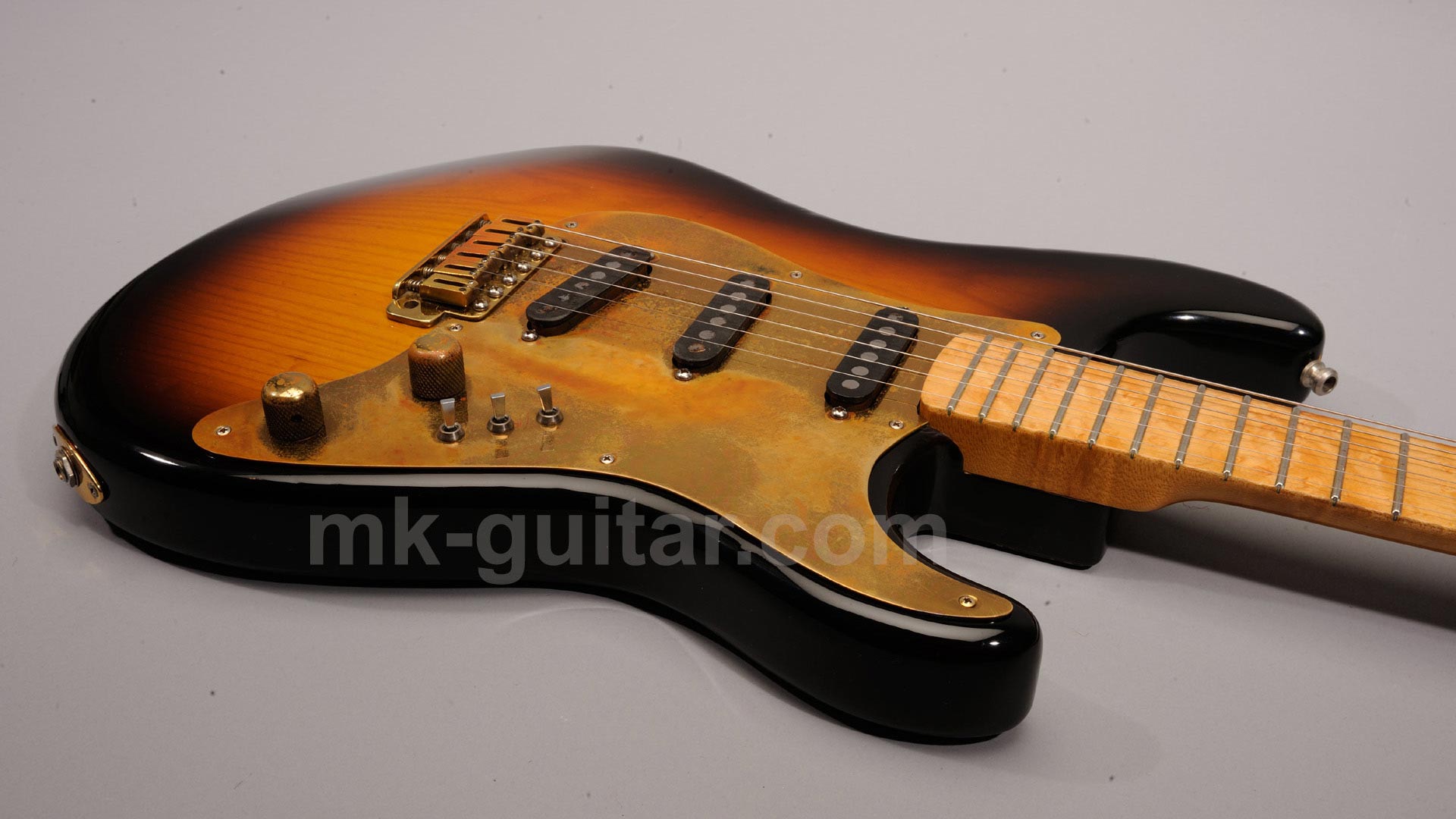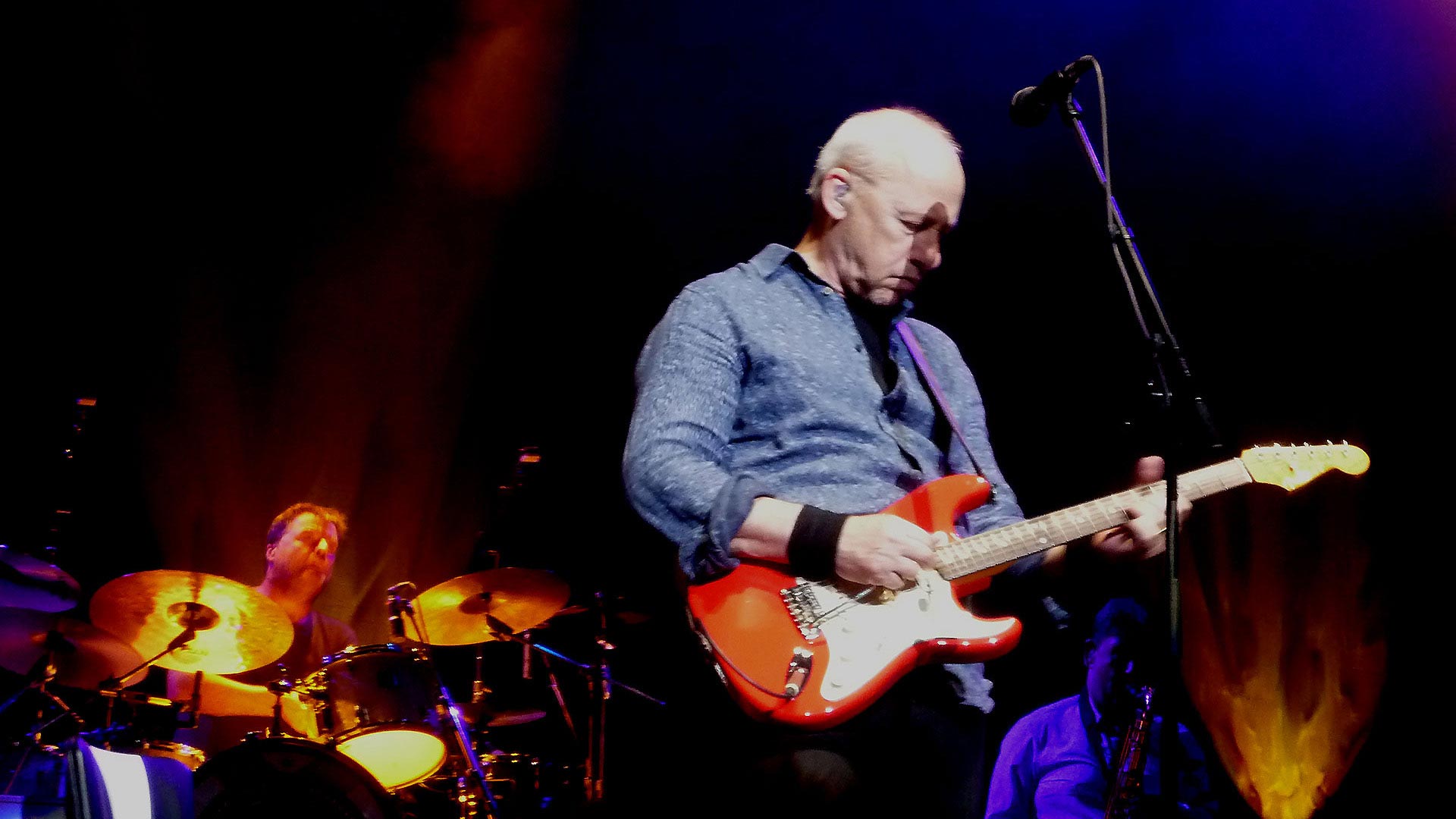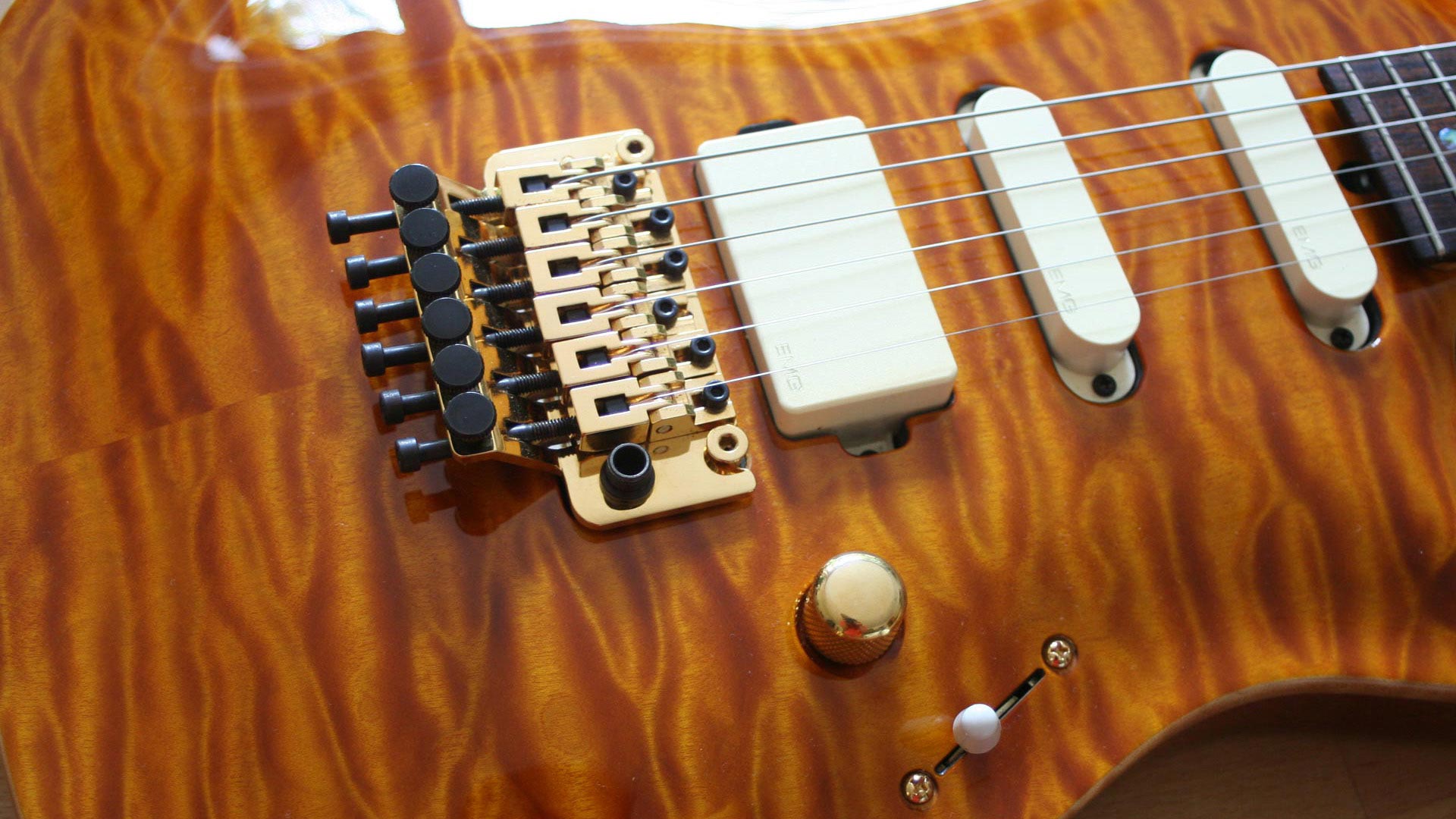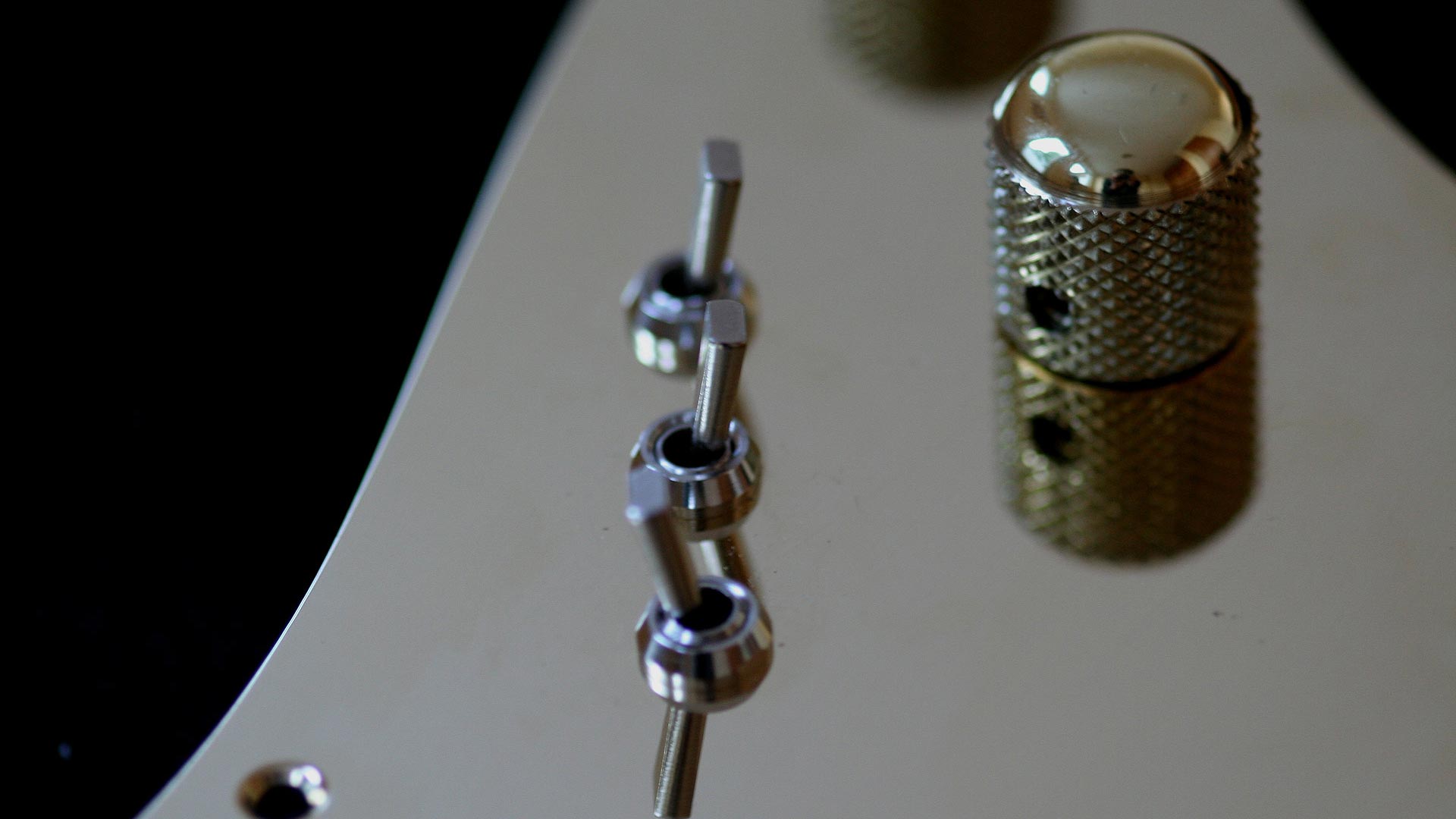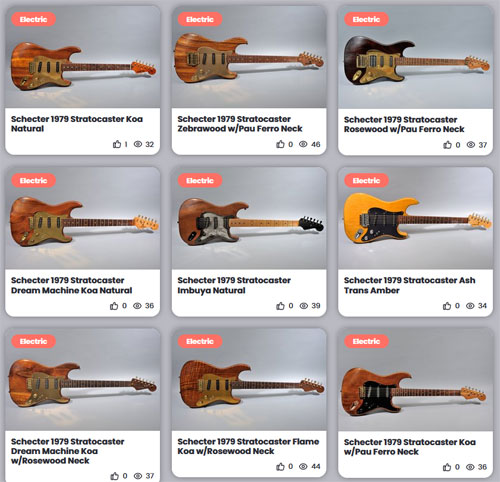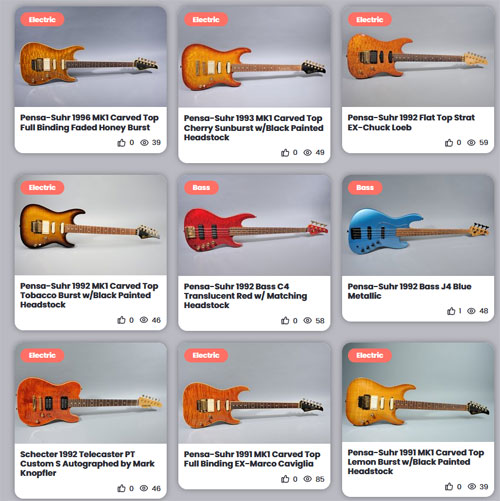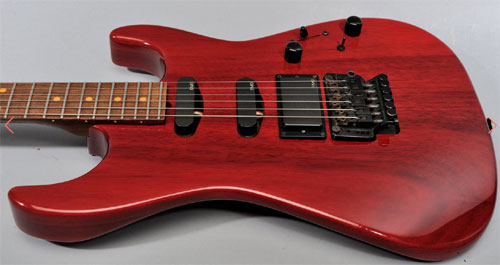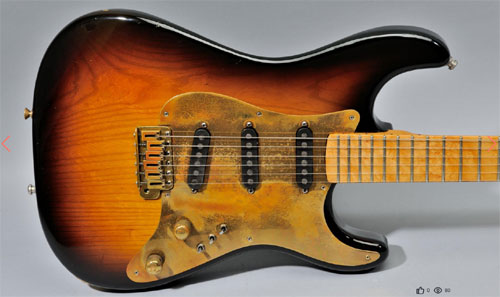Dire Straits Guitar Sounds on Four Different Guitars
In my latest Youtube video I am playing four different guitars to a self-produced backing track. This backing track combines some Dire Straits flavours, a little inspired by songs like News, Single Handed Sailor or Once Upon a Time in the West (meter changes!), Tunnel of Love, plus some more.
I am playing these guitars:
Red Fender Stratocaster
I used this guitar on many previous videos, however it has a different body now (an old Japanese one). It is painted with hot rod red nitro. The neck is a Fender neck, and it has a steel vintage tremolo. There are two MK61 pickups, and one VFS-1 pickup in the neck position. 09 nickel strings
Red Schecter replica
I built this one completely myself. It was featured in a few previous videos where you could see the unpainted mahogani body, which now has a Schecter-style metallic red nitro finish. It features a brass tremolo, and the Alchemy pickguard with Seymour Duncan SSL1’s. 09 Dean Markley nickel plated strings
Birch Schecter replica
It has an oil-finish flamed birch body, and a birds-eye maple neck. It has the same brass tremolo unit but the golden Making Movies pickguard with the Schecter F500T replicas. Each pickup can be switched to the full overwound coil, or to the tapped normal coil. 09 Dean Markley nickel plated strings
Suhr carved top (MK1)
It has the active EMG pickups, two SA’s and a 85 humbucker. For the distorted parts I pulled the mid boost pot that enables an EMG SPC boost. 010 – 42 strings
Amps and effects
All amps and effects were software (from my Soundcraft digital mixer) with the exception of a Hotcake overdrive pedal on the first track with the birch Schecter, and for the distorted Suhr sounds.
